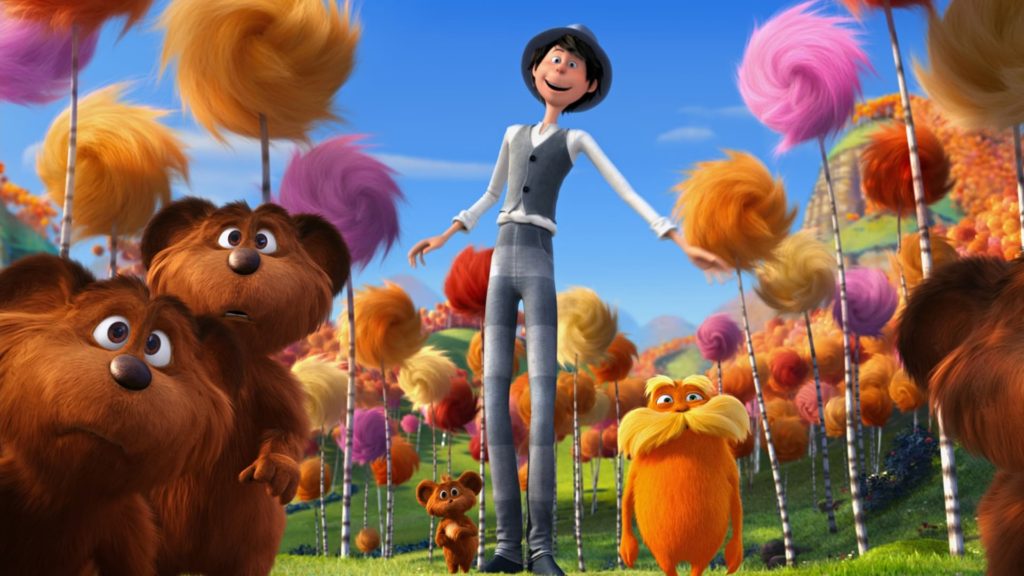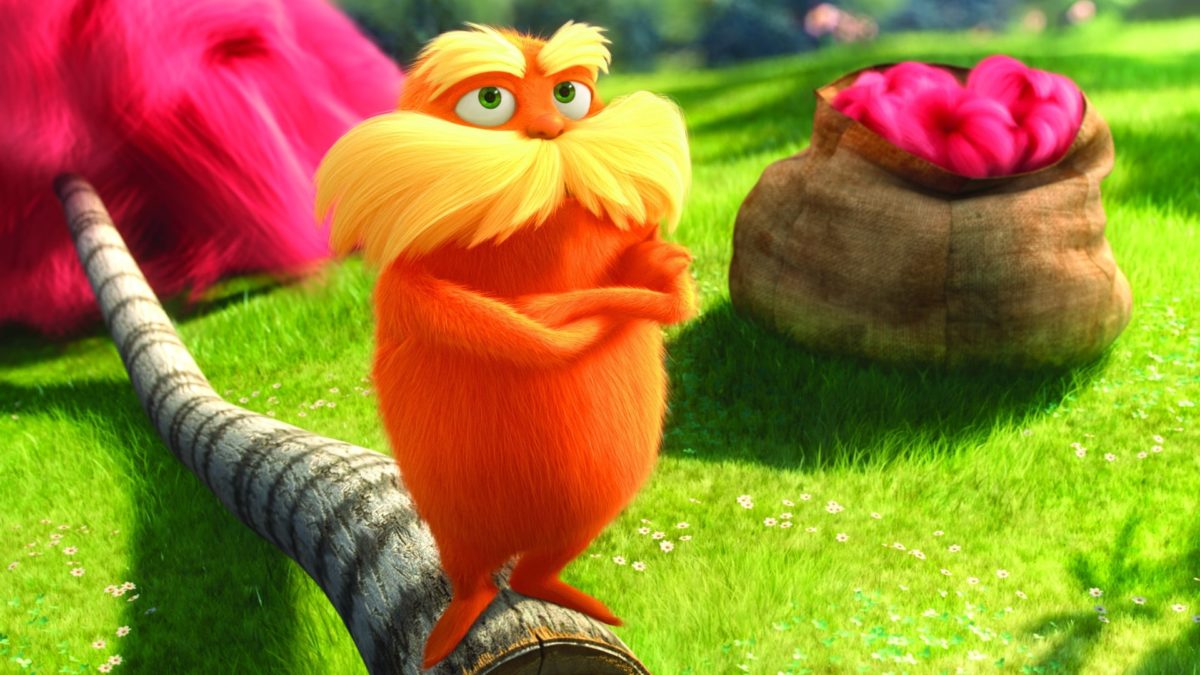It’s not really possible to make a proper anti-capitalist film that’s also a summer tentpole created by Illumination Entertainment, so I understand some resentment to The Lorax (an adaptation of the 1971 Dr. Seuss book). It also suffers from narrative padding, which is a problem of nearly every feature film ever based off of a children’s picture book; there are about four wheel-spinning chase sequences here where one or two would have sufficed.
But gosh darnit, it’s fun and more sincere than I expected. I emerged pleasantly surprised; even enthusiastic. I can’t quite shake the sense that the whole thing is disposable — it is still an Illumination picture, after all — but it’s not as vacuously inane or self-contradictory as it very easily could have been. (Especially at a brisk 86 minutes.)
One strength is that the soundtrack rips, especially the gut-blaster of an opener “Thneedville.” It’s a better version of “Everything is Awesome” from The Lego Movie, a double espresso shot of a dystopia whose denizens think they’re in a utopia. The musical phrases drag out with intoxicating ululation and bizarre non-sequiturs that run through my head unwillingly on a regular basis — ”and uses 96 batteries”… “including this brand new parking lot!“.
There aren’t too many numbers, but nearly every one is catchy: “How Bad Can I Be,” the breaking bad montage song, is probably the runner up to “Thneedville” unless you want to count the demo of “Biggering,” a rock-opera banger deleted from the film for being too dark.
The movie’s animation is colorful and cartoony. It is only vaguely evocative of Seuss (minus the long-scroll illustrations in the credits), but still charming. Of special note are the fluffy “truffula” trees, each with a million fine threads such that I wanted to grab one out of the screen and cuddle up with it.

The story operates in two timelines: The present, where normal boy Ted (named after Theodore “Dr. Seuss” Geisel, and voiced by Zac Efron — two American icons) pines after Audrey (named after Dr. Seuss’s wife and voiced by Taylor Swift — who somehow does no singing despite being the most famous American singer of the past quarter century and cast in a musical). Ted eventually discovers the shiny facade of Thneedville hides an apocalyptic truth of economic and environmental depletion.
As he leaves the city walls and explores the Expressionistic exterior wilds, he meets the aged Once-ler, voiced by Ed Helms, who narrates the film’s second timeline: a flashback to the founding of Thneedville, which contains a heavily extended version of the story from the book. (There are some weird Internet bubbles centered on sexualizing the Once-ler; I will leave it to you to Google that topic.)
The movie does its best to stick its thematic landing without sacrificing its friendliness, and I frankly think it does an admirable job at showing the slippery slope of capitalistic growth in a kid-accessible way.
When Danny DeVito’s Lorax (maybe the sixth most important character despite being the title source) pensively says “thank you, Ted,” it’s not just a capper to the story. It’s a tribute to Dr. Seuss and his legacy of kid lit that challenges us to think outside the box.
Is It Good?
Good (5/8)
Dan is the founder and head critic of The Goods. Follow Dan on Letterboxd. Join the Discord for updates and discussion.

